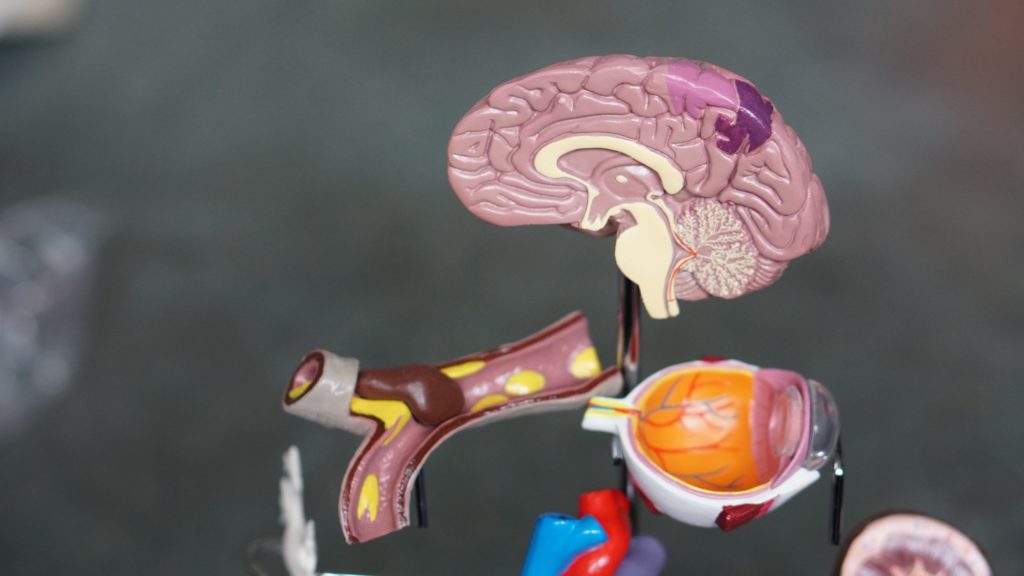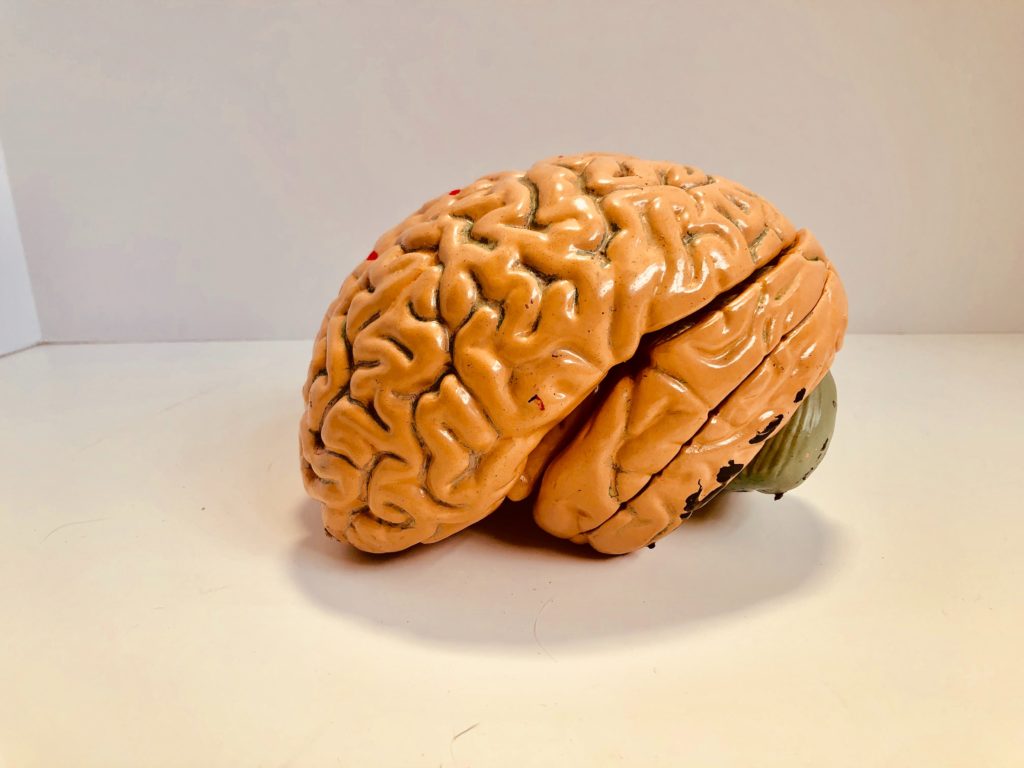It’s often said that the early stages of Alzheimer’s are difficult to diagnose. This is because many of the symptoms are also common in people who do not have the disease. In this article, we will discuss 10 signs of Alzheimer’s that you should be aware of. If you or a loved one displays any of these signs, it is important to seek medical help as soon as possible. Early diagnosis is key to helping those with Alzheimer’s get the treatment they need and improve their quality of life.
What Is Alzheimer’s?
Alzheimer’s is a type of dementia that causes problems with memory, thinking, and behavior. It is the most common form of dementia, accounting for 60-80% of all cases. Alzheimer’s typically affects people over the age of 65, but early-onset Alzheimer’s can occur in people as young as 40.
Alzheimer’s is not a part of normal aging, but as you grow older the likelihood of developing Alzheimer’s disease increases.

What Are The Signs Of Alzheimers?
The symptoms of Alzheimer’s can be divided into three categories: memory problems, changes in mood or behavior, and difficulty with activities of daily living.
Memory problems are the most common symptom in the early stages of Alzheimer’s. This may include forgetting recent conversations or events, asking for the same information over and over again, or relying on others for help with everyday tasks.
Changes in mood or behavior are also common in early-stage Alzheimer’s. This may include becoming more withdrawn, feeling confused or disoriented, experiencing changes in sleep patterns, or exhibiting new personality traits. Some people may be diagnosed with mild cognitive impairment.
Finally, people with Alzheimer’s may have difficulty with activities of daily living such as driving, handling finances, and cooking.
If you or a loved one is displaying any of these symptoms, it is important to seek medical help as soon as possible. Early diagnosis is key to helping those with Alzheimer’s get the treatment they need and improve their quality of life.
Alzheimer’s disease progresses, such as memory problems, trouble with comprehension, loss of bowel and bladder control, memory loss, problems with speeching and writing, etc.
Memory Problems
The most common risk factor in the early stages of Alzheimer’s disease is memory problems. This may include forgetting recent conversations or events, asking for the same information over and over again, or relying on others for help with everyday tasks.
Disorientation And Confusion
Another common symptom of early-stage Alzheimer’s is disorientation and confusion. This may include becoming more withdrawn, feeling confused or disoriented, experiencing changes in sleep patterns, or exhibiting new personality traits.
Withdrawal From Work Or Social Activities
People with Alzheimer’s may also withdraw from work or social activities. This may include difficulty driving, handling finances, or cooking.
Trouble With Comprehension
People with Alzheimer’s may also have trouble with comprehension. This may include difficulty understanding conversations, reading, or writing.
Problems With Speech And Writing
People with Alzheimer’s may also have problems with speech and writing. This may include difficulty finding the right words, repeating oneself, or losing the ability to write coherently.
Poor Judgement
People with Alzheimer’s may also exhibit poor judgment. This may include making unsafe decisions, engaging in risky behaviors, or giving away personal information.
Changes In Mood And Personality
As Alzheimer’s progresses, people may experience changes in mood and personality. This may include becoming more anxious, depressed, or irritable. People with Alzheimer’s may also become more withdrawn and isolate themselves from friends and family.
Aggression
People with Alzheimer’s may also become aggressive. This may include yelling, hitting, or biting.

Delusions And Hallucinations
As Alzheimer’s progresses, people may also experience delusions and hallucinations. This may include seeing things that are not there or believing things that are not true.
Agitation And Wandering
As Alzheimer’s progresses, people may become agitated and wander. This may include pacing, restlessness, or wandering off in search of a familiar place.
Sleep Disturbances
As Alzheimer’s progresses, people may also experience sleep disturbances. This may include difficulty falling asleep, waking up often during the night, or sleeping during the day.
Incontinence
As Alzheimer’s progresses, people may also lose control of their bladder and bowels. This can be a very distressing symptom for both the person with Alzheimer’s and their caregivers.
Difficulty With Familiar Tasks
As Alzheimer’s progresses, people may have difficulty with familiar tasks. This may include brushing their teeth, getting dressed, or eating.
Loss Of Coordination
As Alzheimer’s progresses, people may also lose coordination and have trouble walking. This can lead to falls and injuries.
Seizures
People with Alzheimer’s may also experience seizures. Seizures are brief episodes of involuntary movement or convulsions. They can occur at any stage of the disease but are most common in the later stages.
Difficulty Communicating
As Alzheimer’s progresses, people may have difficulty communicating. This may include difficulty finding the right words, understanding what is being said to them, or losing the ability to speak.
Repetitive Behaviors
People with Alzheimer’s may also exhibit repetitive behaviors. This may include hoarding, collecting, or repeating the same actions over and over again.
Alzheimer’s is a progressive disease that affects people in different ways. If you or someone you know is experiencing any of these symptoms, it is important to seek medical help as soon as possible. Early diagnosis is key to helping those with Alzheimer’s get the treatment they need and improve their quality of life.
If you or a loved one is displaying any of these symptoms, it is important to seek medical help as soon as possible. Early diagnosis is key to helping those with Alzheimer’s get the treatment they need and improve their quality of life. With early diagnosis and treatment, people with Alzheimer’s can manage their symptoms and live fuller lives. If you are concerned about your memory or thinking, talk to your doctor about getting evaluated for Alzheimer’s disease.
Causes Of Alzheimer’s
There is no one cause of Alzheimer’s disease. Rather, it is a complex disease that likely involves a combination of genetic, lifestyle, and environmental factors.
Alzheimer’s disease is a progressive neurological disorder that affects the brain cells responsible for memory, thinking, and behavior. The cause of Alzheimer’s is not yet fully understood, but it is believed to involve a combination of genetic, lifestyle, and environmental factors. Researchers are still working to identify all of the risk factors for Alzheimer’s disease.
Despite the fact that there is no treatment for Alzheimer’s disease, there are therapies that can help control symptoms and decrease the illness’s development. If you or someone you know has been diagnosed with Alzheimer’s disease, talk to your doctor about treatment options.

Prevention Of Alzheimer’s
Prevention of Alzheimer’s disease is currently not possible. However, there are things you can do to reduce your risk of developing the disease. These include maintaining a healthy lifestyle, getting regular exercise, eating a healthy diet, and managing any chronic health conditions you may have.
If you or someone you know has been diagnosed with Alzheimer’s disease, talk to your doctor about treatment options. There is also much that can be done to support those who are living with Alzheimer’s disease and their caregivers. There are many resources available to help people cope with the challenges of this debilitating disease.
Alzheimer’s disease is a progressive neurological disorder that affects the brain cells responsible for memory, thinking, and behavior. The cause of Alzheimer’s is not yet fully understood, but it is believed to involve a combination of genetic, lifestyle, and environmental factors. If you or someone you know has been diagnosed with Alzheimer’s disease, talk to your doctor about treatment options. There is also much that can be done to support those who are living with Alzheimer’s disease and their caregivers. There are many resources available to help people cope with the challenges of this debilitating disease.
Final Words
Alzheimer’s disease is a devastating illness that affects millions of people worldwide. If you or someone you know has been diagnosed with Alzheimer’s disease, it is important to seek medical help and support. There are many resources available to help people cope with the challenges of this debilitating disease.
If you or a loved one is displaying any of these symptoms, it is important to seek medical help as soon as possible. Early diagnosis is key to helping those with Alzheimer’s get the treatment they need and improve their quality of life. With early diagnosis and treatment, people with Alzheimer’s can manage their symptoms and live fuller lives. If you are concerned about your memory or thinking, talk to your doctor about getting evaluated for Alzheimer’s disease.
Articles You Might Enjoy Reading



